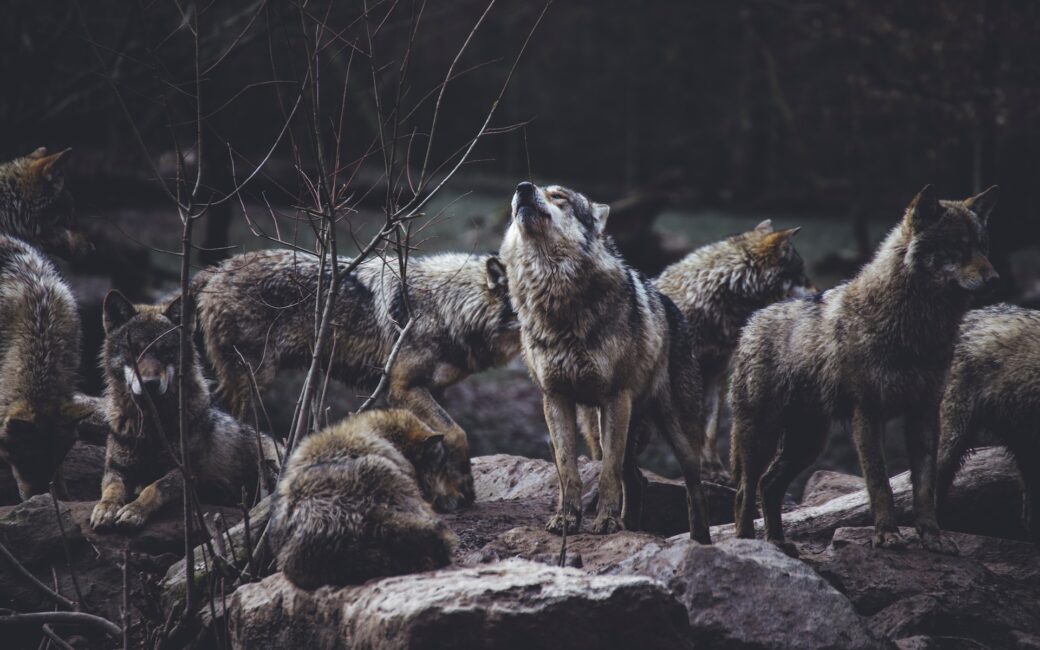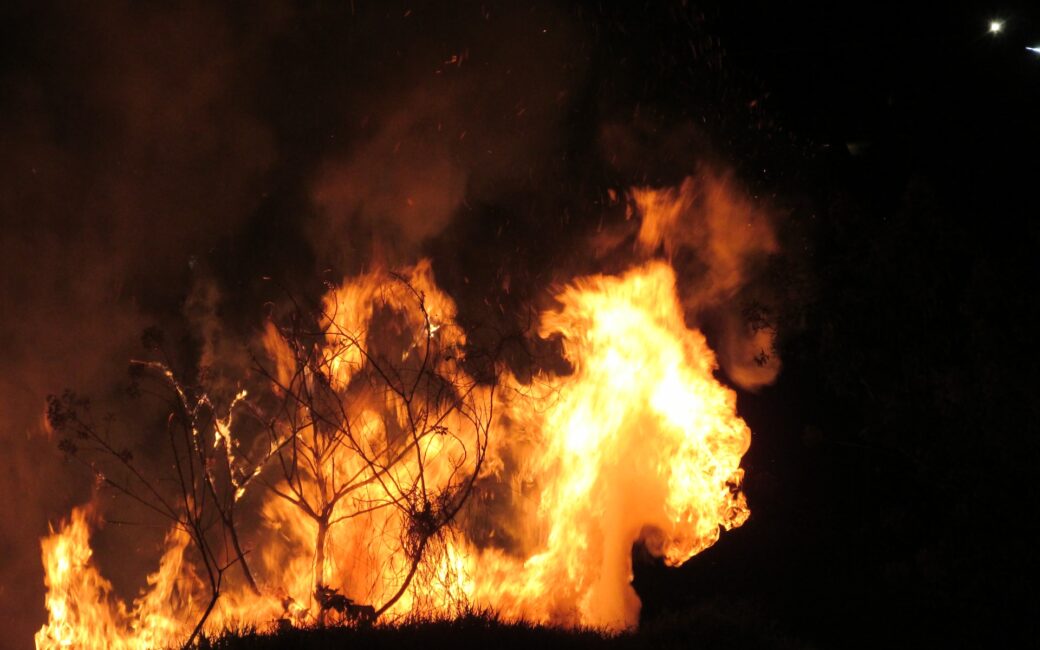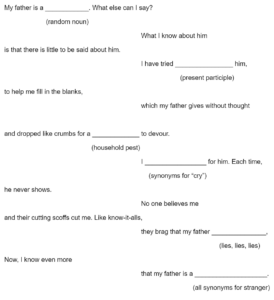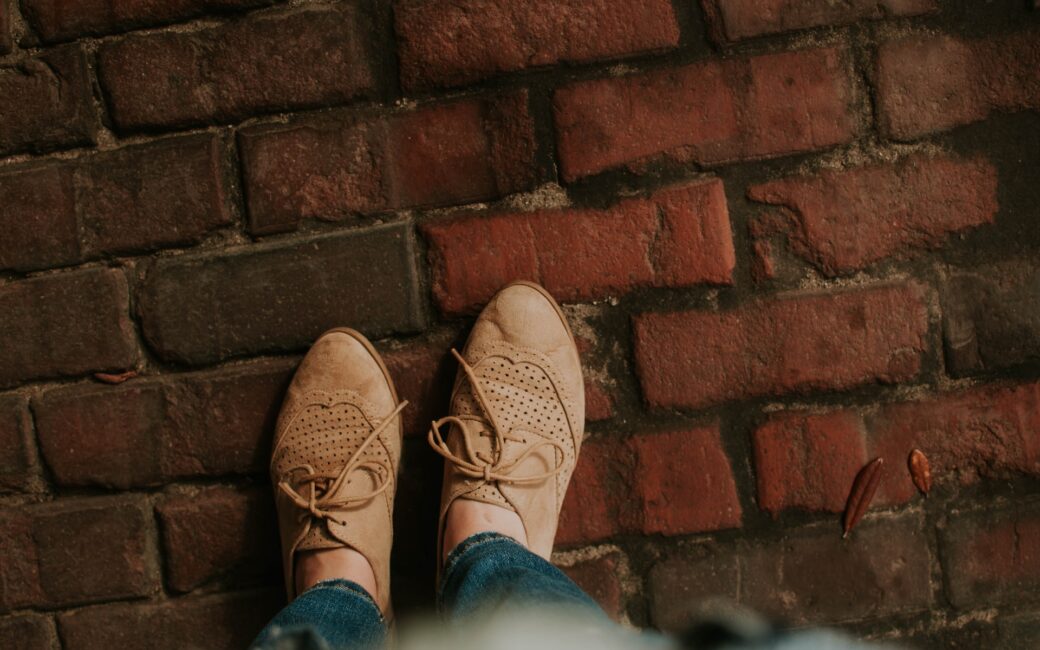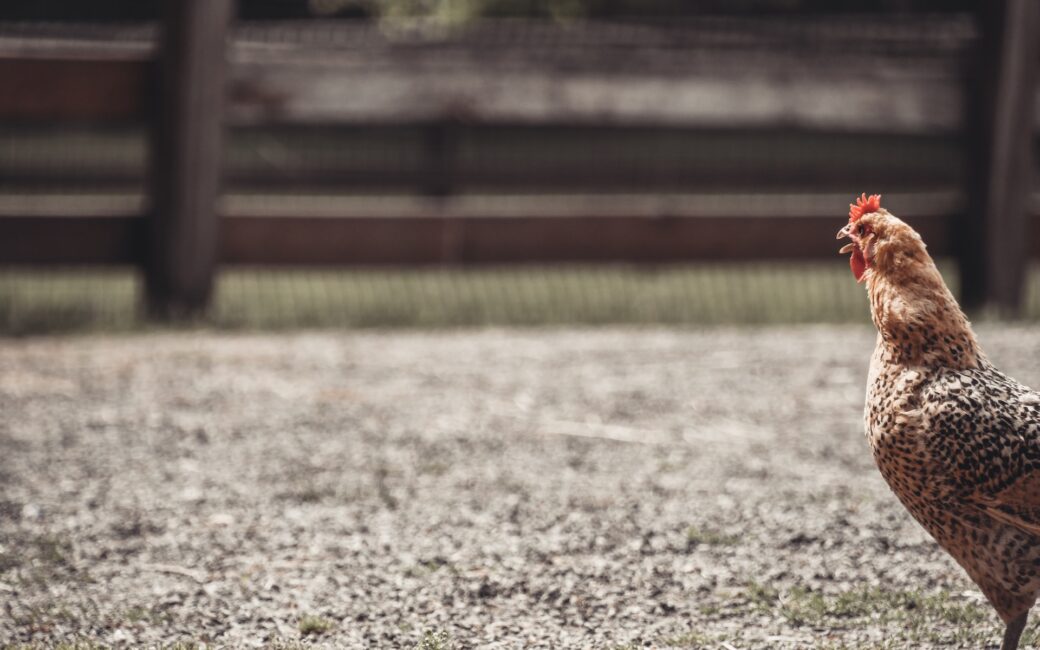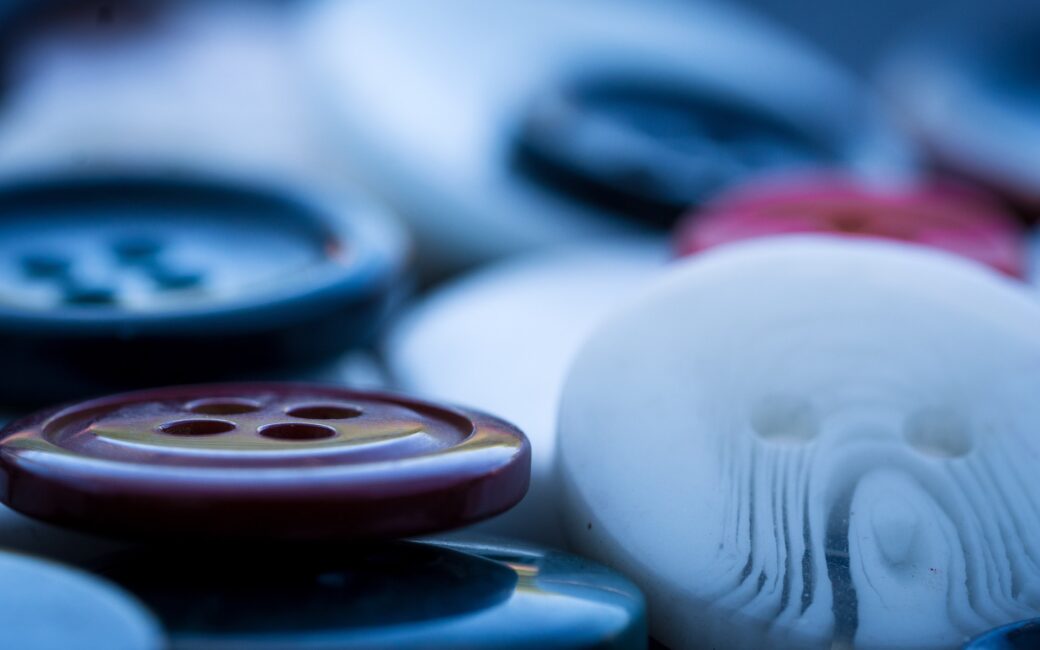The night the chickens died, Lacie couldn’t hear a thing. She was in the bathtub with her headphones on, blasting the MP3 player’s thirty minutes of Britney Spears and Miley Cyrus for the fourth time. The sight would’ve given her Mama a heart attack, because if toasters in the bath could kill you then you know that racket-maker could, too. But Lacie closed her eyes against that aching memory. In that moment, she was fifteen and in the tub, even though the water was cold and red and speckled with the flakes of foam from her headphones.
Lacie Hughes, her Mama would say. You’re a reckless girl.
In the other room, the sliding door screeched open and shut. Lacie unplugged the drain with her toes, but didn’t get out as the water sunk away. There was a clack-thump of something heavy set on the kitchen table. Booted footsteps towards the bathroom. Rob opened the door without permission. He never asked permission.
Lacie slid off one headphone.
“You close the hatch to the chicken coop?” he asked.
Lacie opened her eyes, but didn’t look at him. She looked at a baby photo on the wall that was supposed to be her. It was ripped on one edge, but Lacie could still see the arm that held the baby. The arm was freckled, thin, and blotchy. It was not her Mama’s arm.
“Think so,” Lacie replied.
He was breathing through his mouth.
“What about Sammy then?” Sammy was their mutt. “You chain him up?”
“No, sir, I did not.”
“Well, ma’am,” he said. “Looks like he’s gone.”
Lacie hummed in a sleepy way. She was glad.
“You gonna get out of that bath?” Rob asked.
Lacie’s eyes rounded. She looked at Rob—a thin man who might have been a crack addict (maybe he was, once), all small and stubbly.
“Maybe,” she said. “What’s going on?”
“Honey. The dog’s lose. We gotta go get him, I mean—” He shrugged, slowly and purposefully, gesturing about the room like there was something obvious she didn’t see. “What if he hurts something else?”
The question was like a small shock that made her wince, like the electric currents she played with in science class—back when she went to school.
“What do you mean? Dad.” She called him Dad when she wanted him to like her.
Rob’s eyes flicked to the ripped baby picture, back to Lacie, then to the ground.
“Chickens are dead.”
Lacie was still for several moments before she realized that she should have reacted more. Rob loved those chickens, and she knew it. So, Lacie moved her eyebrows up carefully.
“I’m sorry,” she said. “But—what does that have to do with Sammy?”
“Dog’s the one that killed them, honey, seein’ how ripped up they are.” Then, hushed, like a child with a secret: “I think Sammy’s gone rabid.”
She didn’t say anything, which made him smile. It was his easygoing one, the kind that erased any memory of what kind of person he was. “Get out of the bath,” he said, then turned and walked down the hall, back to his rifle on the kitchen table.
Ten minutes later, Lacie was wrapped in a coat and following this strange father, neither of which were her own. They exited the cabin and slipped into the forest that blocked any searching eyes.
They were the only human beings for miles.
#
Lacie met Rob over a month ago. She was sure it was over a month, though she wasn’t certain. In those first few days, she didn’t think to count.
The day she met Rob, Lacie decided to hate her Mama.
Lacie woke up with an aching scalp and no food in the house. An aching scalp because, at church the night before, Mama looked at her and said, “Lacie Hughes, your hair’s a rat’s nest,” and ripped through it with a brush until strands of hair floated through the sanctuary like particles of dust. No food in the house because, right before grocery day, Mama’s little brother asked for rent money. While Lacie went slack-mouth at the empty fridge, Mama said, “Oh, but he promises to pay us back this time; it’s just a few hundred dollars, and he’s been getting really better!” To top it off, when Lacie walked out of her room in a black tank top and choker, Mama said, “Lacie Hughes, you want your classmates to think your mama raised a whore?” And Lacie snapped and screamed and cussed at her until the big hand on the kitchen clock moved by a quarter, which was when Lacie’s throat felt scratched bloody. Mama was silent except for the rattling of her bracelets. She shook and cried like a frightened creature.
As Mama slowed to a stop at the high school, she placed her fingertips on Lacie’s hand, and when Lacie looked, her Mama’s eyes were cluttered with tears. Lacie felt some emotion then that hugging would’ve made worse, but scoffing would deaden. So she scoffed, hauled up her backpack, and left her Mama’s car for the last time. And that was the final image that her Mama burned into Lacie’s eyes: her crying face that said, I’m sorry, I’m sorry, I’m sorry.
Lacie went through her school day with one mantra dancing in her head: I hate her. She marched to her classes, flung herself into some back desk, and listened to the headphones under her hoodie. I hate her. Lunch, more classes, an hour of detention for being tardy, then trudging to the empty street. I hate her.
By the time she met Rob, she wasn’t surprised that she wanted to go with him.
He leaned against the truck, watching her walk like he was waiting for her and her only. He gave her one of those country smiles that she liked on other dads’ faces. He said, “Long time, no see, honey. I’m your dad. You probably don’t recognize me anymore, but that’s alright.”
Lacie inspected his shadowed eyes and ratty sneakers. Photos of her dad existed, crammed into Mama’s nightstand, from before he skipped town. Rob was not her dad.
“Your mom’s got a flat tire,” this not-dad said. “It was out of the blue, but she called me to pick you up. She, uh, knew I was in the area. I was gonna meet you later today.”
Lacie didn’t think he looked like a dangerous man. He was only taller than her by a finger-length, and had not a scrap of muscle on him.
“You gonna hurt me?” she asked.
That easy smile never left. “No, honey. Not gonna hurt you.”
Lacie Hughes was a reckless girl. She got in that truck and watched her hometown drift by like a passing train.
“I know you’re not taking me home,” she said.
“I am,” Rob said. “I am taking you home.”
#
They found Sammy with his nose buried in a rabbit’s den. He panted happily and trotted right on up to Lacie to be leashed. On the walk back, Sammy would knock against Lacie’s leg, then give her jeans an apologetic lick, short and sincere. With every little kiss, Lacie’s chin trembled. The porch light from between the trees glinted off Rob’s rifle.
Rob stopped at the tree line and grabbed her elbow. “We’ll bury him here,” he said. “Tie him to a tree. Tight.”
“Dad.” Lacie’s voice shook.
“You’re gonna want to do as I say. Tie him.”
She did. Sammy panted in her face; his drool dripped to the grass. It was clear.
Lacie squeezed her eyes tight. Why couldn’t you get away?
“You know—” She swallowed. It was hard to breath. “I don’t think Sammy killed the chickens.”
Rob was quiet. She hated that. It meant he was thinking.
“Well,” he said, hushed. “I don’t know what in the world else it could’ve been.”
“Could’ve been a coyote,” she whispered. “Or a fox.”
“Weren’t neither.”
“Dad, Sammy didn’t kill the chickens.”
“Come hold this gun.”
“You’re a crazy person.” Her voice came out choked. “I am not gonna kill Sammy.”
“Don’t pin a crime on someone if you can’t follow through.”
His voice was even. But when Lacie looked over her shoulder and saw his face, she saw a warning. Sammy was about to have company in his grave.
So, Lacie took the gun. Rob held his hands over hers. There was no skewed aiming, no chance of her turning the rifle to anyone but the dog. Lacie didn’t see where she aimed. She saw nothing through her tears as she pulled the trigger, and hoped Sammy knew.
I’m sorry, I’m sorry, I’m sorry.
#
The night the chickens died, Lacie couldn’t hear a thing. She didn’t want to. Those chickens were the rock that held the fluttering kite of her sanity to the ground. The problem was, they meant the same to Rob.
She did it with a kitchen knife. Sliced their windpipes first, then ripped apart their bodies once she couldn’t feel their hearts beating against her fingers anymore. It wasn’t clean. The knife left rough, ragged cuts. Her MP3 player exhausted the thirty-minute loop and was halfway done again by the time the chickens were dead. As she caught her breath outside, the second loop finished.
Lacie unchained Sammy when she could stand again. She kissed him on the head and whispered, “Better you than me.” Inside, as she ran a bath, the music looped for the third time.
Lacie Hughes was a reckless girl. She knew that the music would deafen her to Rob if he came home, but she didn’t care. She repeated her mantra to herself, the one that glued itself to her brain and heart the first time she saw this cabin and the misery of being without her Mama came to her like a punch in the mouth. I hate him. When he locked her in her room and refused her food because she cried and begged to go home. I hate him. When she looked at every half-ripped picture of a baby held by a strange woman with thin arms and a version of Rob that was young and beaming and hopeful. I hate him.
#
Rob didn’t let her take another bath before he locked her in her room, taking her headphones and MP3 player with him. When the door shut and locked, she heard a strained snap.
There was nothing in that room but a bed with stained sheets, a bucket, and her backpack of notebooks and pencils. Lacie laid in bed, slept, and wrote when she felt like it. Night turned to a clouded morning. A clouded morning to afternoon, then darkness, then the earth took another lazy spin until two days had passed since the chickens died. Lacie stopped writing. Her brain gave her no more words, so she laid in her hunger and dirt and Sammy’s dried blood.
A few times, she woke up enough to hear Rob yelling, though no one else was in the cabin. But she didn’t care—she slept. She slept until something hit her in the face. Her eyes focused—peanut butter crackers.
Rob was in the doorway, holding his rifle like an old man holds a cane. Sweat soaked his shirt, and his fingers wouldn’t stop twitching.
“It’s, uh, moving day. We’re gonna find a new place.” He watched her fumble with the crackers. “I’ll get that for you, honey, I just—” He laughed, unsmiling. “Better get your stuff together.”
Lacie chewed a cracker. It coated her dehydrated mouth like sand in a desert.
“Honey.”
She swallowed, and when she spoke, she felt like the desert she swallowed. “Do you even know my name?”
#
The police arrived in the afternoon to a bloody chicken coop and an empty house. To all reports, Lacie was nothing more than a wrinkled note tucked under the bedframe:
Mama, I forgive you. And I’m sorry, too.


